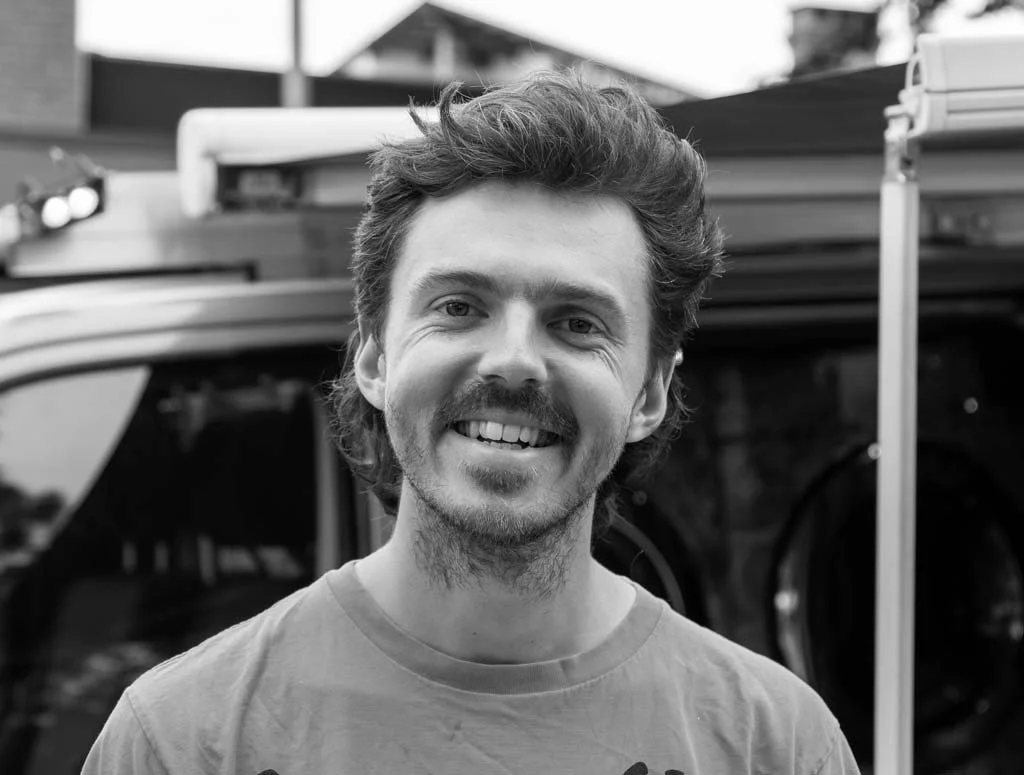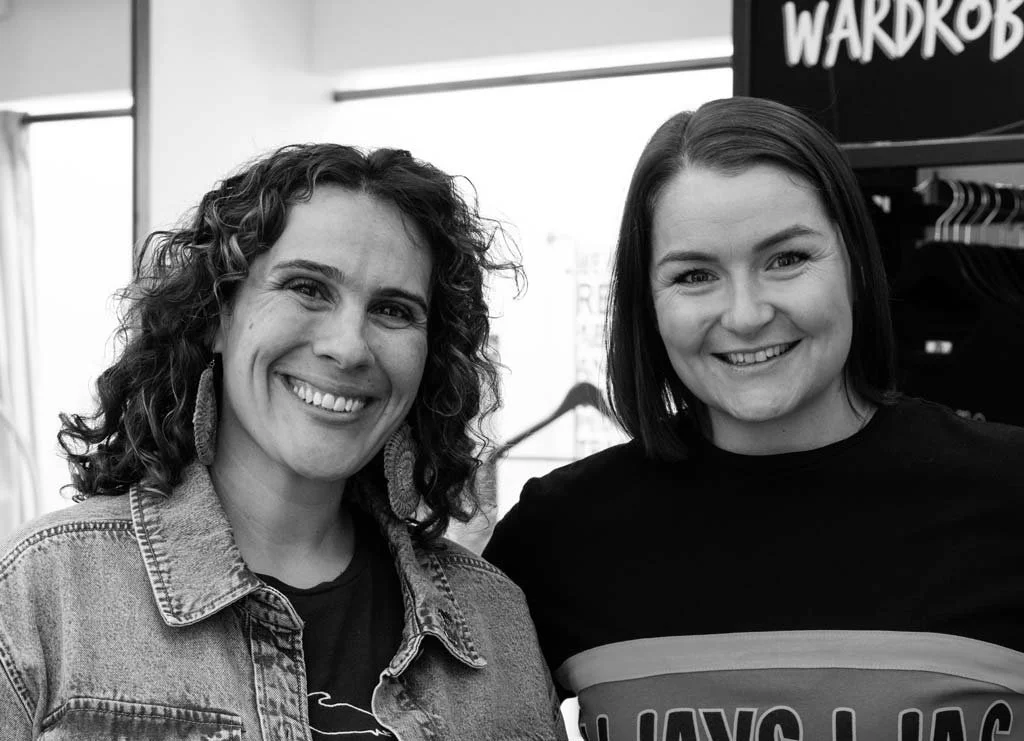Professor Michael Roy On What Social Enterprises Need To Succeed
Michael Roy is Professor of Economic Sociology and Social Policy at the Yunus Centre for Social Business and Health, Glasgow Caledonian University, UK.
Professor Roy has specific expertise in studying the health and well-being impacts of social enterprise-led activity, publishing extensively on this topic in major international scientific journals such as Social Science and Medicine and Public Management Review. He has also written on policy ‘ecosystems’ of support for social enterprise, and on Social Impact Bonds, which the subject of a recent paper in Stanford Social Innovation Review. He is Programme Leader for a Master’s programme in Social Innovation, which attracts students from all around the world and he has participated in a wide variety of panels and conferences internationally, including in the US, Canada, Australia, New Zealand, Malaysia, Thailand, India and all across Europe.
Professor Roy’s research has been funded by the OECD, the ILO, the European Commission, the UK’s Medical Research Council and Economic and Social Research Council, Employment and Social Development Canada, the Scottish Government and the Swiss Government. He has participated at conferences on the social economy at the invitation of both the Italian Government and the Slovak Government on the occasion of their presidencies of the EU Council. He is Deputy Editor in Chief of Social Enterprise Journal, and is on the board of Voluntas: the International Journal of Voluntary and Nonprofit Organizations. He was awarded the Helen Potter Award of Special Recognition for 2017 by the Association for Social Economics based in the USA.
Michael shares key traits commonly seen in successful social entrepreneurs, he discusses common points of failure and provides insights into what we might learn from some of the leading social enterprise nations.
Highlights from the interview (listen to the podcast for full details)
[Tom Allen] - Could you please share a bit about your background and what led you to working in Academia and the social enterprise sector?
[Michael Roy] - Well, it's a long and torturous kind of journey to where I am today, but I was a civil servant for over a decade, and I worked in various areas of economic development, and skills, and science, and all sorts of areas like that.
And then I left the government, and I actually set up and ran a social enterprise for a while. I was interested in the model, and I had a really interesting time, and it was a really challenging period of my life. One of the things that I found, was that I was working closely with the local government in the area, and the challenges of working with local government and social enterprise are really quite fascinating. Particularly since it didn't go very smoothly. At all. But it was the challenges of that particular period that eventually led me to academia. I went back and did a Masters, first of all, in social research, and then I was invited to apply for a PhD scholarship on the topic of social enterprise at the newly constituted Yunus Centre of Social Business and Health at Glasgow Caledonian University back in 2010, 2011.
And so, fast forward. Today I'm still working in the area and still enjoying it, still loving it.
Tell us a little bit more about what you're doing at the moment. You're Professor of Economic Sociology, and Social Policy at the Yunus Centre for Social Business and Health, so what types of projects and research are you involved in?
I do a variety of projects, actually. We've actually just finished a major project, funded by the UK's Medical Research Council and Economic and Social Research Council, which are blue chip funders of research in the UK. That was on the health and well-being impacts, or establishing to evaluate social enterprise as a health and well-being intervention, or initiative if you like. I'm not keen on the word "intervention" because it denotes doing stuff to the people, but we really focused on the idea of social enterprise, community-owned, community-based social enterprises, and how the impact on the health and well-being of, particularly vulnerable people in communities. So, that was actually a major programme of research. It was a five-year programme, and it literally finished just a couple of months ago, so I'm really drawing breath on that one at the moment and looking at the way forward in terms of where we go next. What with that research, but also with other streams of research as well. So a whole variety of different projects.
That sounds like a really, really big project to sink your teeth into.
It was one of the largest social enterprise projects I think there's been. It was offered at two million pounds, which is just shy of four million dollars. So it was a really significant project.
Michael with Nobel Peace Laureate Muhammad Yunus at the Yunus Centre in Glasgow.
Wow. There would have been a lot of learnings from that… You have worked with government as well, so looking at social enterprise then from a policy perspective, what do you believe are some of the key steps governments need to take to foster and support an innovative social sector?
From my experience, there's no one size fits all solution. I think people, certainly governments, like to go around the world collecting policies, and looking at best practice and what works in one particular area and applying it to their own. And indeed, that explains a lot in terms of how social enterprise, or social policy, has travelled around the world. Social policy ideas is often by individuals going to different countries and saying, "Oh, that seems like a good idea. I think we'll do that here."
But I do think, however, there are a number of different things that governments can do in terms of creating a supportive environment for social enterprise. You said an innovative social sector, but I suppose a social enterprise sector. For example, access to finance is a big important factor, frankly, particularly not just in a start-up phase. But, very often, there's a lot of emphasis placed upon a start-up phase, but also a key phase is along the life course or development of the enterprise itself. So when they're looking to commercialise an idea and start up a business, but also in terms of accessing different markets. Or it might be around internationalising the offering. Or it might be around accessing different markets, whether nationally or internationally. Or it might be how to measure impact, that sort of thing.
So, I suppose a system support, but at key stages along the... I'm hesitant to use the word "pipeline" here, but to use along the life stage of the enterprise itself and in terms of the different variety of products and processes, the various services they provide along the way.
You've had exposure to a lot of social entrepreneurs, Michael, and you've been a social entrepreneur yourself. So what do you see as some of the most important traits of successful entrepreneurs?
Now, again, there's no one size fits all. What we do find is very often social entrepreneurs are quite unreasonable people, frankly. And I find that the power of unreasonable people often get things done. Often I find the ones that are able to retain one foot in the communities, they are basically there to serve… so those have empathy. They obviously have business skills, and they have expertise in a variety of different areas.
But generally speaking, empathy is the most important trait, I think. And also they need to be mavens. They need be bridges. They need to be boundary spanners. They need to be sign posters. Of course they need to be experts in their own particular area. But I actually find what's far more important is that they know someone who knows someone, if you know what I mean? So they're able to connect people from disparate areas together. And I think that's probably the most important trait.
I think that obviously it's important in order to make a cogent case for someone supporting their business idea, but in actual fact…
if you're a people person then inevitably that will iron out some of the weaknesses in any business plan, frankly. Because we often hear that people invest in people? And I think that is absolutely the case when it comes to social enterprise.
In his natural habitat: chairing a conference session on social innovation and health.
Absolutely. Some great insights there, Michael. You spoke about empathy and being bridges in the community. So would you say that a common reason social enterprises might fail is simply a lack of empathy, or are there any other key elements that you think might come to play?
Yeah, I think a lack of that, and connected to that is we often have this notion called "mission drift" in social enterprise (in academic speak). Where effectively, enterprises will reach a certain size, and then it's all about feeding the beast. It's all about keeping them going rather than focusing back upon the mission you were set up to start with in the first place.
I think mission drift is a big factor in social enterprise. If not failing, then failing to maintain their mission.
And, you know, effectively they stop being social enterprises. They might call themselves social enterprise, wear the clothes of social enterprises, but they're doing nothing else other than what every other main stream enterprise does. Then it begs the question to whether they're really social enterprises after all.
Michael (far left), with colleagues from the UK Prof Simon Teasdale (2nd from left) and Prof Alex Nicholls (3rd from right) at an event recently in Hong Kong.
Would you say that a common reason social enterprises might fail is simply a lack of empathy, or are there any other key elements that you think might come to play? [Continued…]
There's also another thing called... I'm going to get really technical now. It relates to when social enterprises work, particularly with the public sector, we see this an awful lot. And it's something called "institutional isomorphism." So effectively that means they start wearing the clothes, they start looking like just another part of the public sector. They start putting into place systems. They start professionalising, and before you know it they are effectively another part of the public sector. So they need to maintain their independence.
Social enterprises need to maintain their focus on their mission.
And of course there's a million and one other reasons why social enterprises fail. I think those are the two main things that, certainly I've seen, that are the main pitfalls when it comes to social enterprises.
There's some great reflections there.
You're speaking from Glasgow, Scotland at the moment; a country which I would consider as one of the leaders of social enterprise in the world. In fact we met over there at the Social Enterprise World Forum, where you led the Academic Symposium. So being placed at the epicentre of social enterprise, at least in my opinion, are there any countries that you believe are really leading the charge when it comes to social innovation, and if so, what are they doing that you think Australia and other countries around the world could adopt?
Well, I think that Scotland is probably the best country in the world at selling itself as being the best country in the world at doing social enterprise. I genuinely think that there's no one country that's leading the charge. But I do think, obviously, that…
there are a variety of things that Scotland have done that are really interesting in terms of a ten year social enterprise strategy, co-developed, co-designed, and co-owned by the sector itself. I think that's a really valuable thing to have, a strategic direction which is shared, a vision which is shared by both the sector and government.
But I also think a number of other countries are doing, if not exactly the same thing, then... For example, people will often take Quebec as being one of the main countries. Particularly in terms of the social solidarity economy, settlers social economy tradition. And I do think there is something around a country like Scotland or like Quebec, which ironically are actually, the vision that they’ve come up with for social enterprise is often created as a reaction to forces which, they're not altogether happy with, in terms of a neo-liberal economic model. And it's around focusing on the importance of community, and it's not just about a charismatic, heroic, usually male, social entrepreneur.
It's all about people working as a collective. And coming up with an alternative vision for social enterprise, which goes with the grain of the national culture, or the culture that they want to inculcate. Scotland sees itself as a progressive, modern nation, and therefore they want social enterprise to reflect that. And it wants it to be reflected in social enterprise. So Quebec has a similar mission, I think, as well.
But to be fair there's lots of really good stuff that's happening all over the world. Particularly the Italian social cooperatives. Mondragon in Spain. There's some really excellent stuff that came out of Canada, for example, in 1920s and 30s around the Antigonish movement, which precipitated the creation of social cooperatives, that cooperatives, credit unions, et cetera, across the whole of America. There's some really excellent examples in North America, particularly in the States, around co-ops and credit unions that we don't really get to hear about because they're really isolated. They're not part of the mainstream narrative.
Perhaps I'm being modest on Scotland's behalf, but I don't think we have all the answers. I do think there's still lots to learn from all pockets of countries.
Were you in New Zealand for the Social Enterprise World Forum?
Michael with one of his students: Eilidh Finlayson was awarded Best Student for the class of 2017 for her work on the MSc Social Business and Microfinance.
I would have loved to have been there, but my wife was giving birth, so we were happily welcoming another member to the family.
Well, we saw some really awesome stuff happening in New Zealand, for example.
The Indigenous communities have been doing social enterprise-like stuff for hundreds, if not thousands of years. So, I still think there's plenty we could learn from Indigenous communities as well.
We do need to become more equipped to learning from other cultures, other countries.
So what inspiring projects or initiatives have you come across then recently which you believe are creating some great positive social change?
That's actually a tough question, Tom. We come across so many different enterprises almost every day. There's a really cool social enterprise that's been founded in Glasgow called Lingo Flamingo. It's really nice. Robbie Norval is the guy who's leading that. They're focusing on people, older people, who have dementia, or risk of dementia, and they're teaching them foreign languages. There's a lot of good research which says that learning a foreign language, particularly later in life, helps prevent the onset of dementia. And it obviously helps somehow in terms of, (I'm not a brain scientist here!), the connections in the brain, and maintains those and helps keep their minds active and healthy. So they're, he's doing some wonderful stuff here, and I've got really a lot of time for Lingo Flamingo.
Those programmes sound like they're creating some great change with those elderly people.
To finish off then, Michael, as an author yourself, what books would you recommend to our listeners?
Well, I'm obviously a researcher, so I'm quite dull when it comes to books. I would always recommend a good textbook, and I don't think there's any better textbook on social enterprise than the book by my colleagues, Rory Ridley-Duff and Mike Bull and "Understanding Social Enterprise", and it's onto the second edition now, and I think they'll be working on the third edition. If they're not working on the third edition. I think they will be soon. And Rory and Mike are great guys.
The other book that's coming out, which I have a chapter in on social enterprise ecosystems with my colleague Richard Hazenburg is called "A Research Agenda for Social Entrepreneurship" and it's been published by Edward Elgar, and it should be out in 2019. It's an edited collection, so effectively it's a collection of chapters with a whole host really leading lights in social enterprise scholarship, social entrepreneurship academia. So there's some really good chapters by a variety of really excellent scholars. That’s by Anne de Bruin, who's a New Zealand scholar, and my colleague Simon Teasdale, who I share an office with.
Meeting of the Voluntas board, Stockholm, Sweden, 2016.
Initiatives mentioned on the podcast
Recommended books
Understanding Social Enterprise by Rory Ridley-Duff and Mike Bull
A Research Agenda for Social Entrepreneurship, edited by Anne de Bruin and Simon Teasdale.










